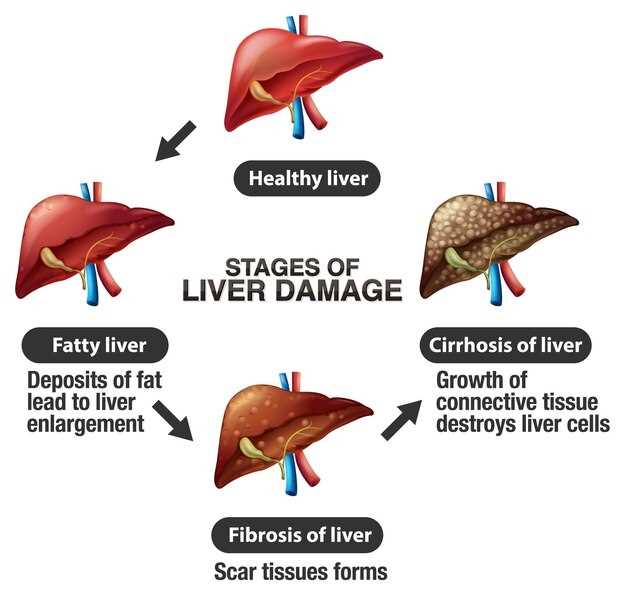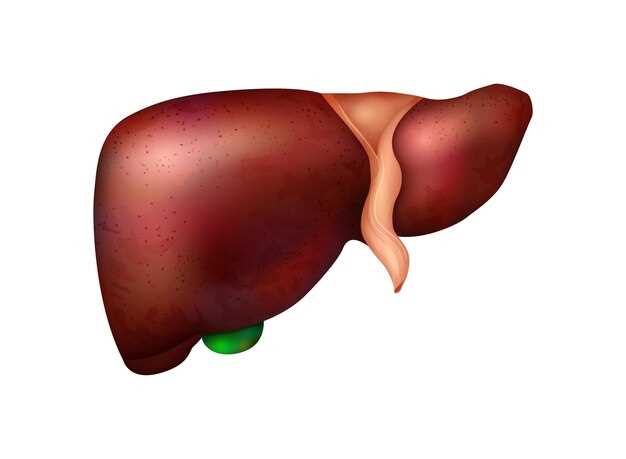
Curious about potential effects on the body’s detoxifying organ? Uncover insights into the influence of a commonly prescribed pharmaceutical on hepatic functionality. Delve into the intricate interplay between this medication and the body’s metabolic processes. Discover how this substance may interact with vital physiological systems, shaping your understanding of holistic well-being.
Understanding the Effects of Cymbalta on Hepatic Health
Delving into the intricacies of how this medication influences your body’s liver function reveals crucial insights into its potential impact on your overall well-being. Let’s explore the dynamic interplay between this pharmaceutical agent and your hepatic system.
Unveiling the Relationship
When considering the interaction between this medication and your liver, it’s essential to grasp the nuanced dynamics at play. This section elucidates the multifaceted relationship, shedding light on the various factors contributing to potential implications for hepatic health.
As we navigate through the labyrinth of physiological processes, we uncover the intricate mechanisms through which this medication may exert its effects on hepatic function. Understanding these underlying pathways is pivotal in assessing the associated risks and making informed decisions regarding your health.Exploring Potential ImplicationsWithin this realm of exploration, we delve deeper into the potential ramifications of prolonged usage of this medication on hepatic well-being. By scrutinizing empirical data and clinical findings, we aim to elucidate the spectrum of possible outcomes, empowering individuals to proactively safeguard their liver health.
Exploring the Risks
When delving into the complexities surrounding the potential impacts of certain pharmaceuticals on bodily functions, it becomes imperative to meticulously scrutinize the landscape of potential hazards and vulnerabilities. In this segment, we embark on a journey to understand the nuanced risks associated with the interaction between a specific medication and physiological processes.
Unveiling Physiological Implications

Within the intricate ecosystem of human biology, there exists a delicate balance that sustains optimal functioning. However, the introduction of exogenous substances can perturb this equilibrium, potentially leading to unforeseen consequences. This section seeks to illuminate the intricate interplay between a medication and the intricate machinery of bodily processes.
Evaluating Potential Disruptions
As we navigate through the labyrinth of pharmaceutical efficacy and safety, it becomes imperative to discern the potential disruptions that may arise within the intricate network of physiological pathways. By carefully assessing these potential risks, individuals can make informed decisions regarding their healthcare journey, thereby empowering themselves with knowledge and agency.
Impact on Hepatic Function

Understanding how this medication influences the functioning of the body’s primary detoxification organ is crucial for comprehensive health management. Delving into the intricacies of its interaction with hepatic processes unveils essential insights into potential ramifications and necessitates proactive measures.
Assessment of Hepatic Function: Exploring the impact entails a nuanced examination of how this substance interfaces with the intricate machinery of the liver. An awareness of these dynamics empowers individuals to make informed decisions regarding their well-being.
Balance and Harmony: Maintaining the delicate equilibrium of hepatic processes is paramount for holistic health maintenance. Acknowledging the potential disruptions caused by certain agents underscores the importance of vigilance and proactive liver care.
Monitoring and Awareness: Recognizing the subtle cues indicative of hepatic stress or dysfunction necessitates a vigilant approach to health management. Heightened awareness enables timely interventions and fosters a proactive stance towards liver well-being.
Empowering Health Consciousness: Cultivating a culture of informed decision-making regarding hepatic health is instrumental in promoting overall well-being. Empowering individuals with knowledge equips them to navigate potential challenges and prioritize liver function optimization.
Managing Hepatic Well-being
In this section, we delve into fostering the health of one
Managing Hepatic Wellness
In this segment, we’ll delve into strategies for fostering optimal liver health and safeguarding its functionality. Without compromising on vitality, it’s imperative to adopt habits and practices conducive to the well-being of this vital organ.
1. Mindful Nutrition
- Embrace a diet rich in nutrient-dense foods, prioritizing fresh fruits, vegetables, and lean proteins.
- Limit intake of processed foods, saturated fats, and excessive sugars, as these can burden hepatic processes.
- Stay hydrated with ample water consumption to support metabolic functions and aid in detoxification.
2. Physical Activity
- Incorporate regular exercise into your routine to enhance circulation and promote liver health.
- Engage in activities such as brisk walking, jogging, or yoga to stimulate liver function and metabolic activity.
- Strive for consistency in your fitness regimen, aiming for at least 30 minutes of moderate exercise most days of the week.
By embracing these lifestyle choices and habits, you can empower yourself to nurture hepatic well-being and optimize overall health. Remember, prioritizing liver health today lays the foundation for a vibrant tomorrow.
Consulting Your Healthcare Provider
When it comes to your well-being, seeking guidance from a qualified medical professional is paramount. Addressing any concerns or queries regarding your health is crucial for maintaining optimal vitality and ensuring informed decision-making.
Your healthcare provider serves as a knowledgeable resource, capable of offering personalized insights and recommendations tailored to your unique circumstances. By engaging in open dialogue and proactive communication, you empower yourself to navigate potential challenges and safeguard your overall wellness.
Consulting with your healthcare provider allows for a comprehensive assessment of your health status, facilitating the identification of any underlying factors that may impact your vitality. Through collaborative efforts, you

